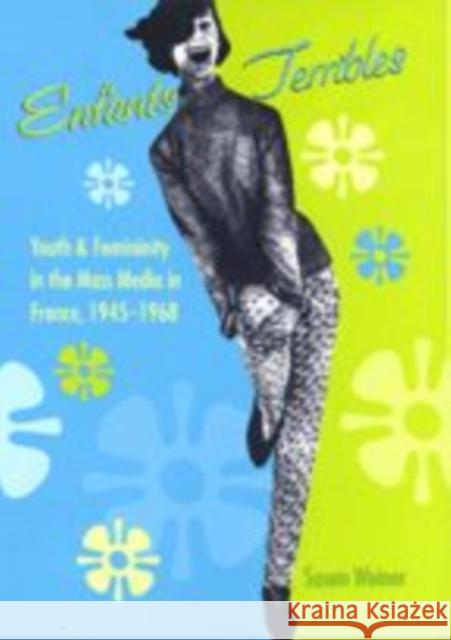Enfants Terribles: Youth and Femininity in the Mass Media in France, 1945-1968 » książka
Enfants Terribles: Youth and Femininity in the Mass Media in France, 1945-1968
ISBN-13: 9780801865398 / Angielski / Twarda / 2001 / 264 str.
Enfants Terribles: Youth and Femininity in the Mass Media in France, 1945-1968
ISBN-13: 9780801865398 / Angielski / Twarda / 2001 / 264 str.
(netto: 198,85 VAT: 5%)
Najniższa cena z 30 dni: 208,79
ok. 30 dni roboczych
Bez gwarancji dostawy przed świętami
Darmowa dostawa!
As the postwar mass media in France imagined her, the teenage girl was no longer a demure and daughterly jeune fille. Instead, she was an enfant terrible, a -bad girl---implying that she was unapologetically and unsentimentally no longer a virgin. Focusing on the role of gender in representations of youth in post-World War II France, Susan Weiner traces how, after 1945, young men and women came to symbolize different aspects of social order and disorder in a country traumatized by the Nazi Occupation and Cold War paranoia, seduced by consumerism and Americanization, and engaged in an undeclared war in Algeria. While overtly political discourses about -youth- generally referred to middle-class young men, Weiner argues that it was in media representations of -bad girls- that anxieties over the loss of a morally and socially coherent national identity found their expression. Enfants Terribles looks at French culture from the Liberation to 1968 through images of the teenage girl which appeared in a broad range of texts and institutions: magazines such as Elle and Mademoiselle, newspapers, novels, popular essays, popular music, surveys, and film. Weiner highlights the new importance of youth as a social category of identity in the context of the postwar explosion of the mass media and explores the ways in which girls both defined and disrupted this category.











